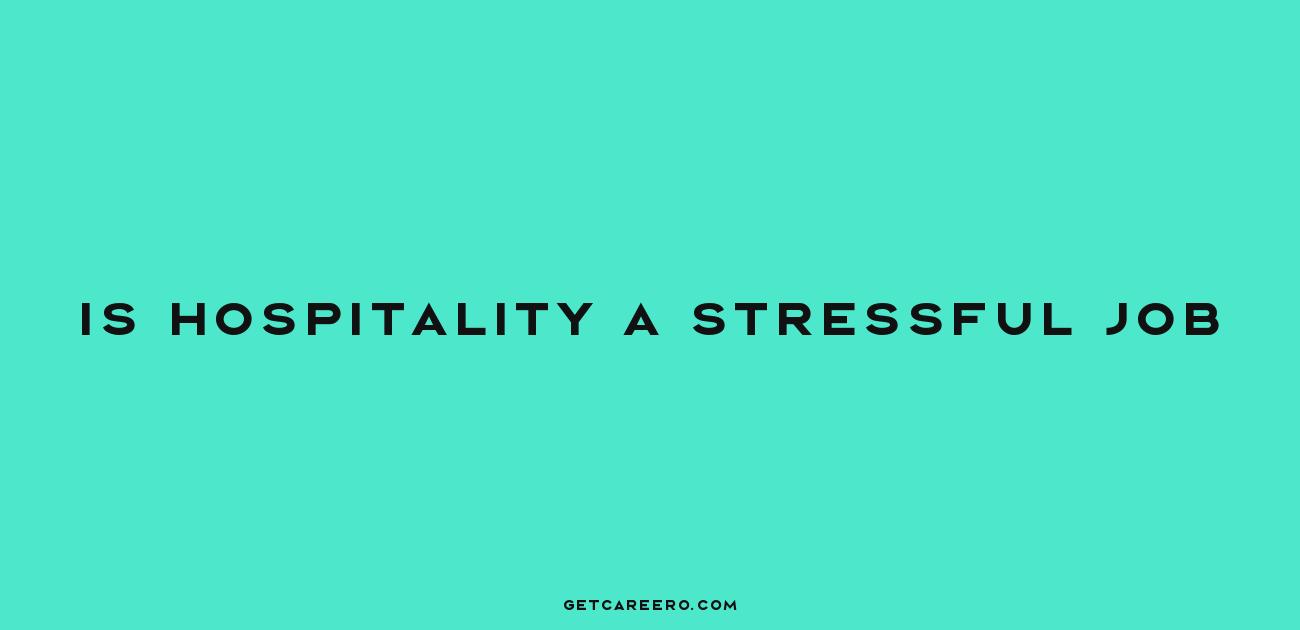Is Hospitality Really a Stressful Job? Unveiling the Hidden Challenges and Survival Strategies – Are you considering a career in hospitality? Before you dive into the world of smiling faces and impeccable service, let’s take a moment to uncover the truth behind the scenes. Is hospitality a stressful job? The answer may surprise you. From the unseen rigors of hospitality work to the harsh reality faced by housekeepers, this blog post will shed light on the stress factors that lurk in this industry. So, grab a cup of coffee and get ready to explore the hidden challenges of hospitality work.
The Unseen Rigors of Hospitality Work
Those who have never donned the uniform of a hospitality worker might look upon the industry with an air of casualness, thinking of it as a world filled with smiles, helpful gestures, and the serene ambience of hotels and restaurants. Yet, beneath this veneer of hospitality lies a reality far more intense and taxing than many might anticipate. Hospitality workers, including chefs, often find themselves in the trenches of a highly stressful environment.
Understanding the Stress Factors in Hospitality Jobs
The hospitality industry is a unique beast, one that never sleeps and constantly demands the utmost performance from its workers. Working in hospitality involves rapid-fire tasks and strict deadlines, a pace that can be relentless and unforgiving. While it’s known that healthcare workers have the highest job-related stress, the hospitality industry follows closely behind, earning its reputation for being a pressure cooker.
Long Hours and Irregular Schedules
For those in hospitality, the clock is an ever-present force. The long hours stretch into the night, often bleeding into the early hours of the morning, and the schedules can swing wildly from week to week. This unpredictability makes it challenging to maintain a healthy work-life balance, leading to potential stress that can accumulate over time.
Overworked and Understaffed
One of the most prevalent issues plaguing the hospitality sector is the reality of being overworked and understaffed. These conditions are not only a recipe for burnout but also contribute to high staff turnover, which further exacerbates the staffing crisis and creates a vicious cycle of stress for remaining employees.
The Harsh Reality for Housekeepers
Within the hospitality industry, housekeeping staff often bear the brunt of the physical demands. Cleaning guests’ rooms is a labor that is physically demanding and taxing on the body. The work is strenuous, and the risks and challenges they face are manifold – from exposure to cleaning chemicals to the physical toll of bending, lifting, and reaching throughout their shifts.
Risks and Challenges Faced by Housekeepers
Housekeepers navigate a minefield of risks daily. They deal with potential biohazards, unexpected messes, and the pressure to turn over rooms quickly and efficiently. These challenges are often invisible to the guests who enjoy the fruits of their labor, but they are ever-present for the housekeeping staff.
Strategies for Surviving Hospitality Work
Despite the challenges, many thrive in the hospitality industry, finding satisfaction in the dynamic environment and the joy of service. For those new to this world, there are strategies to not only survive but to flourish.
Observing the Pecking Order
Every hospitality venue has its hierarchy, an unwritten code that governs the flow of work and communication. Observing the pecking order is crucial for newcomers. Understanding your place and the dynamics at play can help you navigate the complexities of the job with greater ease.
Embracing Resilience and Adaptability
Resilience and adaptability are your best allies in hospitality. The ability to bounce back from challenging situations and to adjust on the fly to the ever-changing demands of the job will set you apart and make your journey in this industry more manageable.
Self-Care and Boundaries
Amidst the chaos, never underestimate the importance of self-care. Setting boundaries is essential to protect your well-being. Ensure you take breaks when you can, eat properly, stay hydrated, and communicate your needs to management. Your health, both mental and physical, should be a priority.
Teamwork and Support
In an industry that’s often powered by the collective effort of a team, cultivating a strong support network among your colleagues can be a lifeline. Teamwork not only makes the job more enjoyable but also more efficient, as a well-oiled team can accomplish tasks more quickly and with less stress.
Continuous Learning and Growth
Hospitality offers a wealth of opportunities for learning and growth. Embrace every chance to learn new skills or improve existing ones. This continuous development can lead to career advancement and a deeper sense of fulfillment in your work.
Conclusion: Is Hospitality a Stressful Job?
The evidence is clear: the hospitality industry can be a highly stressful environment. With long hours, irregular schedules, and the physical demands of roles such as housekeeping, workers must be equipped with resilience and strategies for self-care. Yet, it is also an industry of opportunity and camaraderie, where the right approach can lead to a rewarding career. For those willing to embrace the challenges, the world of hospitality offers a unique and vibrant path.
FAQ & Common Questions about Hospitality Jobs
Q: Is hospitality a stressful job?
A: Yes, hospitality jobs, including chefs, can be highly stressful due to rapid-fire tasks, strict deadlines, long hours, irregular schedules, and potential stress.
Q: What are some of the toughest jobs in the hospitality industry?
A: Housekeeping is considered one of the toughest jobs in the hospitality industry. Cleaning guests’ rooms can be physically demanding and pose various risks.
Q: How can I survive a hospitality job?
A: To survive in the hospitality industry, it is important to observe the pecking order, understand the hierarchy within the establishment, and adapt to the fast-paced environment.
Q: Is a career in hospitality a good choice?
A: Yes, a career in hospitality management can be a great choice for individuals who enjoy working with customers, managing teams, and ensuring guests have an extraordinary experience. It is a customer service-oriented profession that offers opportunities for growth and advancement.

